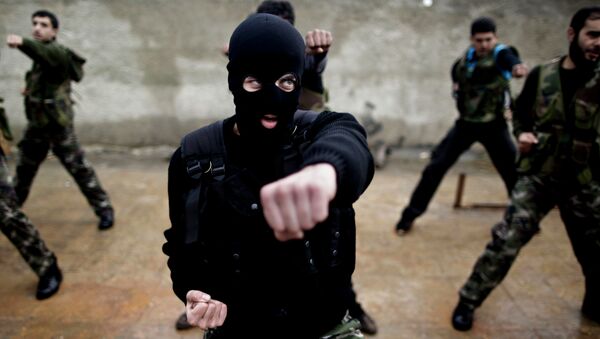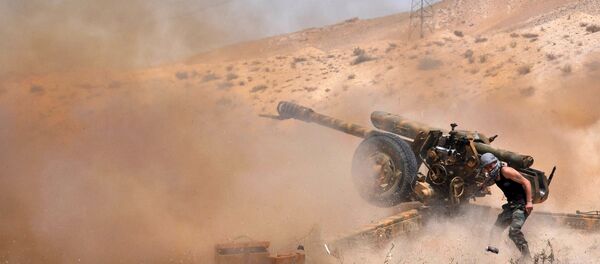Last month, reports surfaced that the al Qaeda-linked Nusra Front had captured a large number of the 60 US-trained Syrian fighters sent to combat IS. Their capture highlighted just one of several key problems in the Pentagon’s plan to train so-called "moderate" rebels.
But despite this early failure, Washington is pushing forward with its plan, and will soon send a group of fighters to push IS away from the Turkish border.
"Although there has been some skepticism about it, it is far too early to write off this program," a diplomatic source familiar with the program told Reuters. "Massive resources have been invested in this to make it work and we think it will work in the end."
In many ways, that skepticism is valid. While the Pentagon initially hoped to train over 1,000 moderate fighters to combat the terrorist group in Syria, that number has dwindled considerably or the simple reason that the Pentagon is unable to find moderates.
"We are trying to recruit and identify people who…can be counted on…to fight, to have the right mindset and ideology," US Defense Secretary Ashton Carter told the House Armed Services Committee in June.
"It turns out to be very hard to identify people who meet both of those criteria."
Others noted that even if the plan were possible, it would take a decades-long commitment to achieve.
"The project is very slow…If it takes this long to train 60, it will take decades to get everyone ready," Capt. Ammar Wawi told the BBC earlier this month.
There were also concerns that arming and training rebel groups could result in inadvertently aiding terrorists. The Nusra Front’s capture of fighters – and their equipment – seems to have proven those fears justified.
But the US and Turkey have a new plan to ensure that the new group proves more successful than the last: the two nations will provide air support.
A deal was struck last month which allows the US to conduct air strikes against IS from Turkey’s Incirlik Air Base. The first of those operations began earlier this month with a drone strike in northern Syria.
But as a number of US experts told Sputnik, air strikes may end up benefitting the Islamic State.
"So in effect, Obama, by his orders, has fully aligned the US with the hardcore Salafist-backers in Saudi Arabia, Qatar and Turkey, to oust Assad and, ultimately, give ISIS [Islamic State] a beachhead on the eastern shore of the Mediterranean," said Jeff Steinberg, senior editor of the Executive Intelligence Review.
The second group of fighters is currently undergoing training in Turkey by instructors from the US British military. Deployment may come in a matter of weeks, and while the precise coordinates will depend on "the latest battlefield dynamics," according to the diplomatic source.
While Turkey has refused to comment on the program, US agencies have only reaffirmed Washington’s commitment to the plan.





